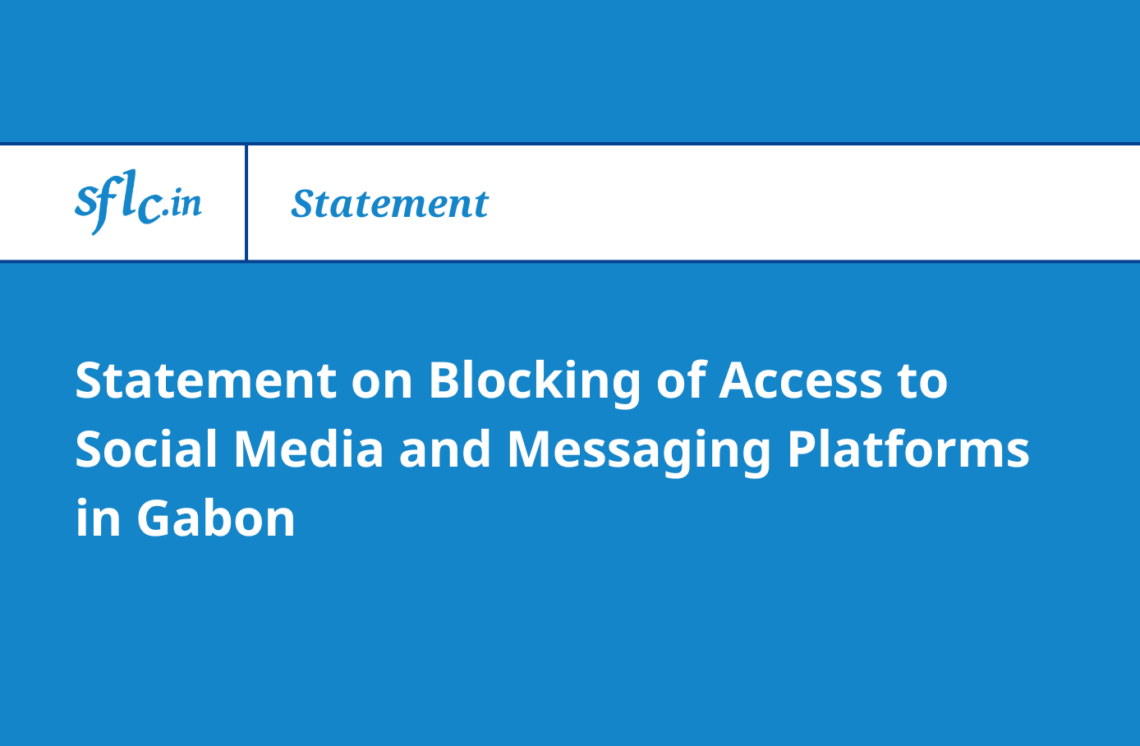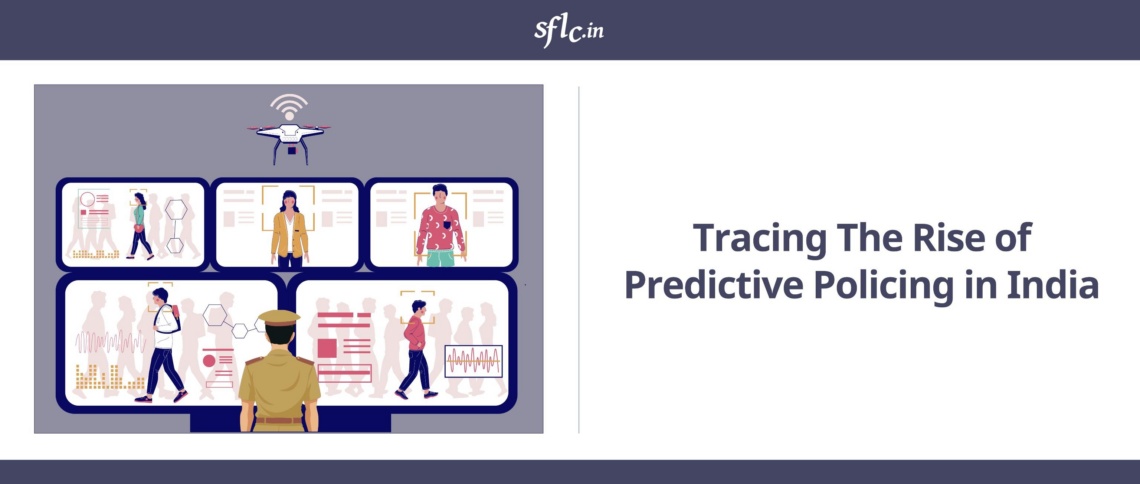SFLC.in organized a debate and panel discussion on“Do Indians have a Constitutional Right to Privacy?” in collaboration with National Internet Exchange of India (NIXI)at O.P Jindal Global University on 1st November, 2015. The event began with opening remarks from Mr. Prasanth Sugathan as a co-sponsor of the event giving a brief introduction of the many facets of privacy and the ways in which it has changed over the years along with highlighting the work profile of SFLC.in and its working style. The event had two segments, a conventional style inter college debate between 10 teams, mostly from the NCR area, and a panel discussion amongst eminent members of various stakeholders involved in the issues on privacy. The event progressed with a short description of the pattern of the debate and introducing the judges for the first round, Ms. Jasleen Oberoi, Partner, Shardul Amarchand Mangaldas & Co.; Mr. Saikat Datta, Former Editor (National Security) of Hindustan Times; Ms. Pooja Mahajan, Partner, Shardul Amarchand Mangaldas & Co.; Mr. Arjun Jayakumar, Counsel at SFLC.in and Ms. Upasna Garnaik, Assistant Professor at Jindal Global Law School.
During the course of Round I, the teams debated on the motion, ‘Should right to Privacy be a Fundamental Right?’ Many interesting points were made by the teams that were questioned by the Judges in the permissible time allowed for interjections after every speech. The following excerpts from Mr. Nikhil Pahwa’s notes on the debate will provide a little glimpse of the points raised by the debaters:
- “…the state has to guarantee the right to privacy, so as not to infringe that right, since it knows that the court is the custodian, and can combat the state and their dictatorial tendencies.”
- “…right to privacy has to be protected by an ordinary legislation. The boundries of the right to privacy have to be created. The constitution can only guarantee you one line, and not get into the specifics of it”… “Privacy can be protected without making it a fundamental right.”
Round 1 continued from 10:00 am- 1:00 pm, following with Mr. Saikat Datta made a few comments and provided constructive feedback on how the goal of a debate is to convince the audience with well developed points and not the quantity of one’s knowledge. For this, he suggested that the focus should be maintained on key arguments in the speech. The qualifying teams for Round II were announced at 1:15 pm, which were Ramjas I, St. Stephens, NLU Delhi, and CLC and the motion for their debate was: ‘Privacy is dead. Mass Surveillance by companies & states is a necessary evil.’
During the Lunch hour, between 1:30 pm – 2:30 pm, the judges had one on one interviews with student representatives of Jindal Global Law School. Before the commencement of Round II of the debate, the distinguished panel of judges for the round were introduced, Dr. Govind, CEO of NIXI, Mr. Arvind Gupta, National Technology Head (BJP), Mr. Prasanth Sugathan, Counsel at SFLC.in, Ms. Shagun Belwal, Counsel at SFLC.in, and Ms. Ruchika Rao, Assistant Professor at Jindal Global Law School. This round witnessed heated debates among the participants arguing on the lines of security v. privacy. All the four teams made brilliant points including:
- “The idea of suspecting everybody without giving a reasonable reason to do so is what is the issue… It’s a two way street:Security and fundamental rights result in a tradeoff (truecaller taking your data for giving you others’ data; instagram being allowed to sell your photos). You need to take into account the importance of dignity, (which is that) you can have social interactions with big brother not watching over you all the time.”
- “Today, the people themselves are killing their privacy because they are benefiting from it. We knowingly do not read terms and conditions…Debate about the privacy is not about whether people can see the content or not but it is about whether the data was put by the consent or not.”
Subsequent to their completion of arguments, there was a short address by Dr. Govind, CEO of NIXI as the co-sponsor of the event. Dr. Govind elaborated on the roles and duties performed by NIXI and highlighted its importance with the advent of the ‘Digital India’ initiative.
From 4:45pm onwards, the second segment of the event, which was the panel discussion commenced. Joining the panel discussion were people with immense knowledge and experience in this area, including Mr. Arvind Gupta, Dr. Govind, Mr. Saikat Datta, Mr. Nikhil Pahwa, and the Chief guest for the event, Mr. Baijayant Panda who is a Member of Parliament from Kendrapara, Odisha. From O.P. Jindal Global University, the registrar, Dr. Y.S. R. Murthy and assistant professor, Ms. Upasna Garnaik participated in the panel discussion. The panel discussion culminated in insights from varying perspectives with the highlights being:
- “I believe that Privacy is implicit in the Fundamental Rights but it would be criminal to not use technology to deliver services to citizens. There are ways and means to ensure that we use the welfare schemes with rightly controlled measures to ensure privacy”- Baijayant ‘Jay’ Panda, Member of Parliament (Lok Sabha) from Kendrapara, Odisha
- “A data protection regime from a Government’s perspective is important to ascertain what data the Government has the right to collect and how it can be used. This regime needs to be transparent and build trust with the citizens.” – Arvind Gupta, National Technology Head, BJP
- “With the advent of technology, new questions of privacy have emerged and no issues of privacy can be understood without understanding the underlying issues of infrastructure.” – Dr. Govind, CEO, National Internet Exchange of India
- “It is not about Privacy, it is about the balance of power, and Information is Power.” – Saikat Datta, Former Editor (National Security), Hindustan Times
- “I know where you live” is one of the most common threats used online. Considering the nature and volume of data collected, Privacy must be a human and Fundamental right.” – Nikhil Pahwa, Editor & Publisher, MediaNama
The panel discussion continued till 6:00 pm, following which the esteemed panelists were felicitated by O.P. Jindal Global University along with awarding the cash prizes and trophies to the winners of the debate. The debate competition was won by the team from Campus Law Centre, Delhi, winning Rs. 40,000; St. Stephens College, Delhi were the runners up, winning Rs. 30,000; National Law University and Ramjas College won the third and fourth prize respectively, winning Rs. 10,000 each.



